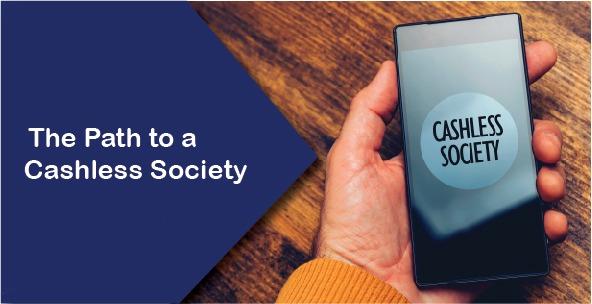As Sweden rapidly advances toward a cashless future, the nation faces growing debates over the implications of a fully digital economy. While electronic payments dominate daily transactions, concerns about accessibility, privacy, and resilience in offline scenarios have intensified. In a recent analysis by Cointelegraph, experts argue that an offline e-cash option is essential to complement Sweden’s digital payment ecosystem, ensuring inclusivity and security for all citizens. This article explores the challenges and potential solutions in rethinking Sweden’s journey toward a truly comprehensive cashless society.
Rethinking Sweden’s Cashless Future Challenges and Opportunities for Inclusivity
As Sweden steadily advances toward a cashless economy, concerns about inclusivity and accessibility gain prominence. While digital payments enhance convenience and efficiency, they simultaneously risk alienating vulnerable groups such as the elderly, rural populations, and individuals with limited internet access. An offline e-cash solution could bridge this gap, ensuring that those without reliable connectivity still participate fully in the financial ecosystem. Such a system would provide instant, secure transactions without the need for constant online verification, preserving autonomy and privacy for all users.
The transition calls for a balanced approach that embraces innovation without compromising societal equity. Key opportunities lie in developing versatile technologies that operate seamlessly both online and offline, coupled with supportive policies that promote digital literacy and infrastructure investment. Below is a summary of potential benefits and challenges associated with integrating offline electronic cash in Sweden’s digital payment landscape:
| Benefits | Challenges |
|---|---|
| Increased financial inclusion for underserved groups | Developing secure offline transaction protocols |
| Maintains privacy without constant connectivity | Ensuring fraud prevention without real-time monitoring |
| Reduces dependency on network infrastructure | Integrating with existing digital payment systems |
- Empower users with flexible payment options
- Safeguard against digital exclusion
- Promote resilience in emergency or low-connectivity situations
The Case for Offline E Cash Solutions Ensuring Security and Accessibility
As Sweden edges closer to becoming a fully cashless society, concerns about exclusive reliance on digital payments grow louder. An offline e-cash solution emerges as a crucial bridge to address issues such as security vulnerabilities, network failures, and digital exclusion. Unlike conventional digital wallets that demand constant internet connectivity, offline e-cash leverages encrypted peer-to-peer transactions that can be executed without a live connection. This ensures that payments remain secure, private, and accessible – even during system outages or in remote areas with limited internet infrastructure.
Key advantages of offline e-cash solutions include:
- Enhanced security: Transactions are encrypted at the device level, reducing risks of hacking and data breaches.
- Inclusive accessibility: Individuals without smartphones or bank accounts can participate in the digital economy.
- Resilience: Payments continue to function smoothly during network downtimes or outages.
| Challenge | Offline E-Cash Benefit |
|---|---|
| Internet Dependence | Transactions without connectivity |
| Privacy Concerns | Local device encryption |
| Financial Inclusion | Access for unbanked users |
Policy Recommendations for Integrating Offline Digital Payments in a Cashless Economy
To foster a truly inclusive cashless society, policymakers must prioritize the development and implementation of robust offline digital payment solutions. These should operate independently of internet connectivity, ensuring uninterrupted access for all demographics, particularly in rural and underserved areas. Key measures include incentivizing banks and financial tech companies to innovate offline e-cash technologies, establishing standardized protocols for secure peer-to-peer transactions, and integrating these systems into existing national payment infrastructures. Additionally, oversight frameworks should be introduced to protect users’ privacy and data, preventing the potential misuse of digital transaction records.
Equally important is the creation of a regulatory environment that supports accessibility and trust. Policymakers could consider:
- Mandating offline payment options as a requirement for merchants and public services
- Providing subsidies or tax incentives for merchants adopting offline e-cash terminals
- Launching public awareness campaigns focused on the security and convenience of offline digital payments
- Collaborating with cybersecurity experts to continuously monitor and upgrade offline payment systems
| Policy Goal | Recommended Action | Expected Outcome |
|---|---|---|
| Inclusivity | Subsidize offline payment tech | Equal access for rural populations |
| Security | Set encryption standards | Consumer trust and fraud reduction |
| Adoption | Merchant incentives | Widespread system usage |
To Wrap It Up
As Sweden rapidly advances toward a cashless future, the absence of an offline e-cash solution highlights a critical gap in its digital payment framework. Ensuring accessibility, security, and inclusivity requires policymakers and stakeholders to rethink current strategies and develop systems resilient to connectivity disruptions. Without addressing these challenges, Sweden’s ambition of a fully digital economy risks leaving segments of its population vulnerable. The path forward demands a balanced approach that embraces innovation while preserving the fundamental advantages of physical currency in an increasingly digital world.
















